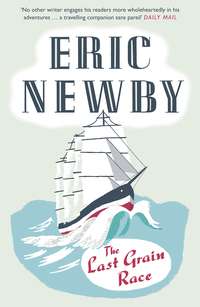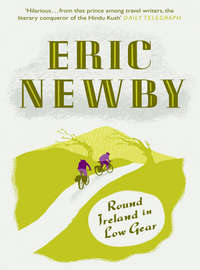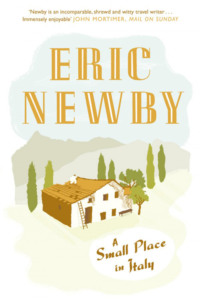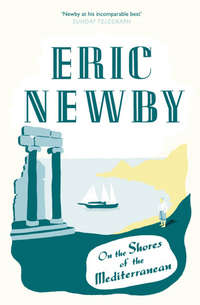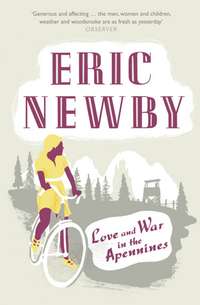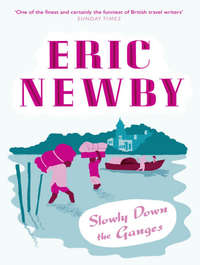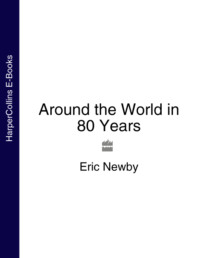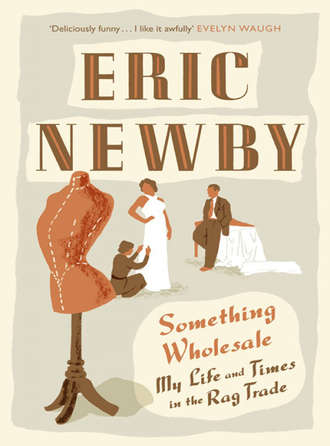
Полная версия
Something Wholesale
As the years passed my father and Mr Lane became very distant indeed. Both were sportsmen – but of a different kind. My father took his exercise in the open air.
My father was obsessed by rowing. When he was forty-five he married one of his model girls, who was twenty-five years his junior, not an unusual thing to do in the business in which he was engaged; but instead of allowing her to gain the upper hand and run to fat, as is customary, he taught her to row and reconstructed her into one of the most stylish oarswomen on the River Thames.
The best man, who was subsequently to become my Godfather, viewed the impending marriage with misgiving. He was himself a dedicated rowing machine who had won the Diamond Sculls at Henley and the Olympics at Stockholm. He and my father were owners of a double-sculling racing shell which, when they were properly bedded into it, was one of the fastest things on the river between Putney and Mortlake.
It was not the union itself the best man objected to. He himself had married the previous year, probably because he felt that a rowing man, like an ocean-going submarine, needed the equivalent of a depot ship to return to. It was the implied threat to their partnership in the double-sculler that worried him. His fears were groundless.
The wedding reception was held at Pagani’s, a now long-defunct restaurant whose knives and forks survived until recently in a public house in Great Portland Street, W.1, still the great throbbing heart of the dress trade. Only a few guests were invited. My father lacked the necessary courage to inform Mr Lane that he was depriving the business of its best model girl; and in retrospect the wedding day can be regarded as the beginning of what modern historians refer to as A Time of Troubles. As nothing else could, the ceremony underlined the disparity of interest that separated Mr Lane from my father.
As soon as the cake was cut, my Godfather suggested a workout in the double-sculler.
‘The train isn’t for hours yet,’ he remarked. The honeymoon was to be spent at the Lotti in Paris, where the senior partner thought my father was going in order to buy models from the Autumn collections.
‘There’s plenty of time to get down to Hammersmith. It’s just coming on to high water.’
‘We can take a cab,’ he added, improvising recklessly to suit the occasion. And they did. ‘We had a jolly good blow,’ was how my father described it when he returned to his bachelor chambers at Queen’s Club, long after the departure of the boat train, to find his bride in tears, supported by her best friend, who had herself made the mistake of marrying the best man and could offer little but cold comfort.
In the following ten years my mother devoted herself to raising me; enjoying herself with my father after office hours and getting on with her rowing. She had abundant opportunity to get on with her rowing.
In the evenings on week days in the Summer, when he was not travelling with the Autumn collection, my father used to row in eights; on Sunday mornings he used to scull ten miles. This Sunday morning ritual was a great trial to everyone as he used to return to the house, which he had taken at Hammersmith so as to be near the river, at half past two in the afternoon, roaring for hot roast beef and Yorkshire pudding. Because of the timing we rarely had servants; even in the Twenties only the most feudal-minded domestics would wait until mid-afternoon to serve lunch.
This unseasonable food despatched, he used to order his motor, a modest open Citroen (he had a great dislike for ostentation) to be brought round to the door where the chauffeur loaded it with baskets containing ‘the tea’. Then, together with my mother, who by this time was in a state of nervous prostration, we would set off for Richmond.
Even this short journey of five miles or so was memorable. My father was a back-seat driver in excelsis; at the slightest real or imaginary provocation he used to stand up in the open machine and deliver broadsides of vituperation at any other road user who endeavoured either to pass him or, if a pedestrian, simply to cross the road.
He himself had driven only on one memorable occasion. On that afternoon, returning from what he always referred to in retrospect as ‘my trial spin’ he had placed his foot inadvertently on the accelerator instead of the brake when about to enter the garage and had destroyed the façade.
In the Twenties Richmond still preserved some of the idyllic atmosphere of an earlier, more leisured age, and on a warm summer afternoon the Thames flowing quietly at the foot of the hill had something of the quality of a painting by Claude Lorraine, an illusion that was heightened by the misty blueness of the shadows among the trees and the grotto-like entrances to the boathouses of the mansions whose gardens ran down to the river, which were overgrown with vegetation, dim, mysterious and cool.
My father’s private boat was exactly what you would have expected him to own if he hadn’t been in the wholesale business. It was a really big double-sculling skiff built of mahogany and beautifully maintained. In 1926, when I first remember it, it was already fifty years old and I was still using it in 1959 when an unusually oafish, so-called waterman broke its back putting it in the water; by which time it was over eighty years old. Now for the first time in memory our family is without a river boat.
It had fixed rowlocks and fixed seats, each with a perforated felt pad for the scullers to sit on. The sculls were the original set made when the boat was built and were the most perfect I have ever handled. The craft was equipped with a boathook, what is called in river parlance a hitcher – actually a paddle-cum-hitcher with a long handle, which was very useful for getting in and out of locks – and a mast and a sail which was never used. The only times we used the mast were on the rare occasions when we towed the boat, which my father and I sometimes did, employing a sort of double harness of webbing. But even in the Twenties the towing path along the bank of the river had ceased to be used for its proper function; horses were no longer employed to tow barges, vegetation had sprung up and our efforts at towing usually ended in our becoming caught up in a blackberry bush. Why we should want to tow the boat at all was never clear to me. My father said it made a change and my mother, who used to steer, took the blame when anything went wrong.
The internal appointments were sumptuous. Up in the bows there was a long, fitted cushion of dark-blue plush with buttons on it, on which one could lounge at full length. The seat on which my mother sat while steering had a plaited cane back like the body of an Hispano-Suiza motor car; aft there was another long cushion. The carpets were of fine quality and matched the cushions. The boat was varnished and was the colour of fine old furniture. It was lined out with real gold leaf and beneath the rowlocks inboard there were black and gold transfers of sphinxes’ heads. On the bow were my father’s initials. Everything had its place; the picnic baskets were specially made to fit the boat and there were mahogany table tops that fitted across the gunwales, with holes in them for plates and glasses so that the contents would not spill ‘in a heavy sea’. If any china got broken replacements had to be specially made – a process that took months, even years, as the holes were of an unusual size. There were hidden lockers and drawers for such things as loose change and tickets for going through locks; there was even a wicker holster affair, similar to the things mounted policemen keep their truncheons in, intended to hold a parasol – my mother kept an umbrella in it. Altogether the skiff could hold five people comfortably for an afternoon. It was also a camping boat. Iron hoops fitted into brass sockets in the thwarts to form a skeleton frame over which fitted a green tarpaulin cover. By day this cover was brailed up, but at night or during bad weather it could be let down to form a tent over the whole boat. This produced a sort of half-light which turned the occupants a curious shade of green. The same kind of cover is still fitted to punts on the Thames. In spite of their colour, or perhaps because of it, punt covers have the property of making young Englishmen amorous which, under normal circumstances they seldom are, except in liquor at three o’clock in the morning.
Our clothes matched our craft. My father wore white flannel trousers with a narrow black stripe, turned up to show his black-and-pink club socks. He wore white buckskin shoes and he had a magnificent blazer of cream flannel with five buttons up the front. None of the clothes made by his tailor ever wore out. They belonged to a period before the First World War when a button once put on was on for ever. My mother always contrived to be extremely elegantly turned out and at the same time workmanlike as she needed to be.
Normally the least sensitive of men to what others wore, my father was extremely put out if anyone turned up for an afternoon on the water in what he described as ‘the wrong sort of clobber’. There was an occasion when a detective from Scotland Yard was invited to accompany us. My father had an extraordinarily wide acquaintance and I think he hoped that the presence of a real live detective would please me. For days before I was consumed with excitement, but when he finally appeared, in scorching weather, the detective wore a black suit, black boots and, when he took off his jacket and waistcoat, displayed a thick flannel shirt and rather grubby braces. He lent an air of gloom to an otherwise happy outing. From that time onwards my father always referred to him in the past tense as ‘that fellow who wore braces’.
At Messum’s boathouse, when we finally arrived at Richmond, there was always a tremendous palaver about putting the skiff in the water. An experienced boatman would be in charge of the operation and apprentices were routed out of the dark recesses of the building to help with the launching. The wicker baskets were stowed away; there was a great business of putting on and taking off sweaters; at the last moment the leathers of the sculls would have to be greased. Finally we were away, my mother steering, I in the bows trailing my hand in the water and being told to ‘sit her up’ by my father, who was sculling strongly, ‘to get her up a bit’ as he put it. He was shoving her through the green water – for at that time Thames water was not the barely diluted sewage it is today – past Glover’s Island, that beautiful little island with the noble trees growing on it that makes the view from Richmond Hill; Eel Pie Island; Pope’s Villa at Twickenham, and Strawberry Hill where Horace Walpole lived; until somewhere by the sluices at Teddington Lock, where the Thames ceases to be tidal, we would have our picnic tea.
In those days our skiff was not an anachronism. There were friends of my father whose private boathouses held at least a dinghy, and sometimes a punt and skiff as well, friends whom he used to salute and before whom I made my best efforts with the one scull I was allowed to use as a mighty oar. The only interlopers were what my father used to call ‘trippers’, who came down on the bus from London and hired a boat for an hour or so. They were usually to be found in midstream and, if they were in a punt, happily paddling from both ends in opposite directions, trying to tear the thing apart.
It was not so much the social implications of their performance that upset my father, although the idea of a punt being propelled by anything other than a pole must have been repugnant to him, it was the menace to his property.
‘AHEAD SCULLER!’ he used to roar at some otherwise innocuous artisan who was intent on ramming him. ‘SILLY KITE!’ he would shout, shoving the interloper off with his hitcher. To which the answer was invariably, ‘Sorry Guv!’
But as the years passed, taxation and death duties played havoc with my father’s friends. Their incomes were much reduced and they shut down their riverside houses. And worse than all this was the development of The Engine. It became possible to hire motor boats. The occupants of hired motor boats were not people who knew their place as far as the river was concerned, but aggressive young men anxious to show off in front of their girls. Cries of ‘AHEAD MOTOR BOAT!’ meant nothing to them. Once one of them rammed us. There were no cries of ‘Sorry Guv’, only a loud blowing of raspberries and the need to re-varnish the boat. On one occasion my father impaled one of these opponents with his hitchercum-paddle and only his rage and undoubted physical strength saved us all from a ducking. But it was not until someone laughed at him and shouted ‘By Gad, Sir!’ in parody of some retired Colonel, that he decided to seek shelter higher up the river.
Once a year we used to have a week’s camping on the river between Windsor and Henley. It was a complicated and awesome operation. For weeks beforehand equipment considered necessary to our comfort was assembled in a spare room: travelling rugs smelling of moth balls, hurricane lanterns, shovels for digging holes in fields and, at the last moment, veal and ham pies with designs of thistles and acorns worked in the crust, cold Scotch ribs of beef, tins of fruit salad, bottles of hock, glasses of tongue.
We used to arrange to be towed upstream as far as Staines. It was always a mystery to me that my father, who had such an abiding sense of propriety so far as the river was concerned, could risk his vessel in such a hair-brained way, but he did; and no accident ever befell us.
On the day of the tow we used to hang about in mid-stream (just like the trippers) waiting for the steamer to come up from Richmond Bridge. As she surged past bells rang, hundreds of eyes gazed down on us and my father threw a specially prepared line to someone hanging over the stern. There was a tremendous jerk and we would be off, with the bow high out of the water, the skiff yawing horribly until my mother got the hang of the steering. The locks were a nightmare. It was my job to fend the steamer off and stop her from squashing us against the slimy, green walls.
All sorts of ludicrous adventures befell us on these holidays. My father was seldom good-tempered since he was either averting disasters or participating in them: like the time at a delightful, Arcadian place called Aston Ferry, when he discovered that we were moored near a wasp’s nest and insisted on smearing the bottom of a frying pan with jam to ‘attract the beggars’. We soon found ourselves rowing for our lives in mid-stream, having abandoned our equipment, as heavily engaged as a convoy in the Coral Sea. It was difficult to feel sorry for my father when he was stung on the nose.
Generally it rained. The rain in the Thames Valley is like the tropical downpour in some fever-ridden jungle, but more intense. And there were swans, made friendly by my mother, who used to give them sardine sandwiches. My father would mistake their intentions.
‘Strong enough to pull you under, those beggars,’ he would observe, lunging at them with the hitcher; dismayed by this unfriendly reception they would raise themselves in the water and hiss ferociously.
In July, 1937, we were on our way downstream, bound for Richmond after Henley Regatta. We arrived very damp at Bray, a village once famous for its vicar, latterly for the Hind Head Hotel, which at that time had one of the finest cellars in England. We had an excellent dinner. My father drank burgundy and my mother drank claret (this was one of the provinces in which he never succeeded in subordinating her tastes to his own).
My father decided that he liked Bray. It was also a very wet night. We never went back to Richmond; the boat was hauled out and put in the boathouse. My father had had enough.
At Bray all went well for a bit; but in the long run affluent members of his own trade, in electric canoes, and the Guards Boat Club at Maidenhead proved too much for him. A knowledge of watermanship is not one of the conditions of membership of the Brigade of Guards. The members of the Boat Club who drifted across my father’s course purveyed a brand of ill-manners that was unequalled in the civilised world and for which he was no match.
‘You don’t find many young fellows interested in skiff work down here,’ he remarked one evening as we were easing the boat in to the landing stage after a particularly disagreeable encounter. ‘I think I’ll move her up next year.’ He meant to Henley, the last stronghold of the rowing man.
It was July 1939. Fifteen years were to elapse before he was able to put his plan into operation.
CHAPTER FOUR Old Mr Newby
If I have dealt at what may seem unnecessary length with my father’s addiction to rowing it is because, seeing his life in retrospect, I realise that it meant more to him than any other part of it.
My father was a complex man. With his love of active sport and the pleasure he derived from the good things of life there was coupled a deep, Victorian sense of guilt that he never succeeded in throwing off. It partly sprang from a deep-rooted conviction that no one should enjoy life as much as he did and partly from a feeling that he was not cultivating his garden with the same assiduity as some of his fellows; those now elderly men who before 1914 had fled from the pogroms of Eastern Europe and set themselves up as tailors in the East End of London.
Working sixteen hours a day, knowing only a minimal amount of English, the most forceful of these refugees had succeeded in setting their sons and daughters on the road to a way of life which to them, working in their sweat shops, must have seemed a crazy dream. In the Thirties their children and grandchildren were beginning to reap the harvest which they themselves had sown with toil and tears – the showroom in Margaret Street, the family house in Cricklewood, the weekends at Cliftonville and Hove, the grandchildren down for Westminster and St Paul’s. It was these men who had trodden the muddy streets of Lvov, Kovel and Voronezh often in fear and trembling who laid the foundations on which the British Rag Trade was raised.
My father was on excellent terms with these old men, many of whom he had employed as outside tailors at the time of the Siege of Sidney Street. A lesser man might have permitted himself a slight feeling of jealousy. If he did experience such feelings he never betrayed them. They too, in their own way, were extremely fond of him. Many of them had suffered fearful indignities and for this reason were at times slightly incredulous at his attitude (to someone who has been unsuccessfully sabred by a Cossack a display of tolerance is often equated with feeble-mindedness). Because he was so English and intolerant in many ways it was one of the last things that one might have expected of him. It was a contradiction in his character that he was only half-aware of, but one that gave him considerable pleasure. In a world that was becoming increasingly racially conscious, among the people with whom he did business his name was a by-word, a sort of laisser-passer.
He never, however, lost his inborn ferocity. There was an occasion when he picked up a man who was behaving in an objectionable fashion on his premises and threw him headlong into the street. The victim brought an action against my father for assault and battery. My father was put in the box and cross-examined by his opponent’s lawyer – an extremely didactic individual.
‘Tell the Court what you actually did to my client, Mr Newby.’
‘I ejected him from my premises,’ my father said.
‘Oh, you ejected him did you? Perhaps you would be good enough to give an ocular demonstration of what you actually did to my client?’
‘I did this,’ said my father. He leant forward and gave the lawyer a violent shove in the chest so that he sat down on the floor.
At this there was a great uproar. The lawyer, his client forgotten, rose to his feet himself claiming assault and battery.
‘Well, Mr Smallbones,’ said the Judge looking down from his eminence. ‘You can hardly complain. You asked for an ocular demonstration – and you got it. The whole thing is absurd. The case is dismissed.’
My father was much disturbed by the political state of the country and by the decline in religious observance. He had a deep-rooted regard for the established order of a religion which he never publicly practised. He never entered a church except as a tourist to look at some family vault.
Yet he would spend long periods on Sunday mornings before setting off for the rowing club reading interminable articles to my mother and me on the parlous state of the Church of England. The Observer was not the free-thinking organ that it is today. If it had been, in all probability he would have burned it ritually.
My mother bore these diatribes with fortitude. She had long since cultivated an expression of eager interest which she was able to assume for long periods of time whilst allowing her mind to range on more attractive subjects. He used to try and catch her out by stopping suddenly in the middle of a sentence, but she was equal to this.
‘Why don’t you go on, dear?’ she would say, blandly, sipping her lapsang souchong. My father would look daggers at her and perforce continue.
I was not so clever. As I grew older it became more difficult for me to listen with equanimity to a twenty-minute reading of a leading article by J. L. Garvin on The Decline of Imperial Responsibility with intervals in which my father made plain his own point of view, and as a result our relationship deteriorated.
He had a curious obsession with violence, but it was of an abstract kind. Walking along a beach he would come on a piece of wood made smooth by long immersion in the water. ‘Foo!’ he would say, weighing it in his hand. ‘You could give a wrong ’un a good slosh with that.’
And his house was full of weapons of offence. Life preservers made from cane and lead and pigskin from Swaine and Adeney, shillelaghs from the bogs and odd lengths of lead piping which he had picked up on building sites. ‘This might do,’ he would say and add it to his collection. But there was nothing eerie about this obsession. He was not addicted to canings and flagellation. ‘Silly kite,’ was all he used to say to me when roused, ‘You deserve a thick ear!’ and at the same time delivered it.
So far as his business was concerned my father travelled a good deal – whenever possible in such a manner that he would arrive back in time for his Sunday morning row – after the departure of Mr Lane he usually had my mother in tow. She accompanied him ‘to put the things on’. She also did most of the packing and unpacking. When he went to Paris or Berlin to buy models for copying she helped him to make up his mind. Sometimes they used to set off for a mysterious place called the Hook in order to sell gigantic coats to the Dutch.
They were both assiduous letter writers and to this day I possess what must be an almost unique collection of letter headings from the Grand Hotels of Europe, stretching from Manchester to Budapest. ‘We had a most disagreeable journey, dear,’ my mother wrote, ‘from Liverpool Street to Harwich, where you would have enjoyed seeing the destroyers. The ship was very dirty and draughty and everybody was sick except your father.’ With the letter arrived a box of sweets from Amsterdam that tasted of coffee beans.
They rarely travelled by air. My father had been a pioneer air traveller on Imperial Airways until on one occasion the machine in which he had been travelling had got into an air pocket and fallen vertically a hundred feet before regaining its equilibrium. The shock had been so great that my father’s head had gone clean through the roof and he had found himself in a screaming wind looking straight into the monocled eye of Sir Sefton Brancker, the Director of Civil Aviation, who had suffered a similar indignity. After the forced landing in a field near Romney Marsh, Sir Sefton had stood my father a bottle of champagne, but he had had enough of aeroplanes and his subsequent journeys were made by more conventional means.
My father’s letters were full of information, but declamatory. More like a Times Leader. ‘Be true to yourself,’ he wrote when I was in the Lower Fifth at the age of eight. ‘I hope you are getting on well with your boxing. When we last had a spar together I did not think that you were leading properly with your right.’ This was not at all surprising as I was left-handed and my father had made me change from left to right-handed writing on the grounds that left-handed men, ‘Cack-handers’ as he called them, were not acceptable in the world of commerce. Because of this for three months I wrote inside out and the results could only be deciphered with the aid of a mirror.


